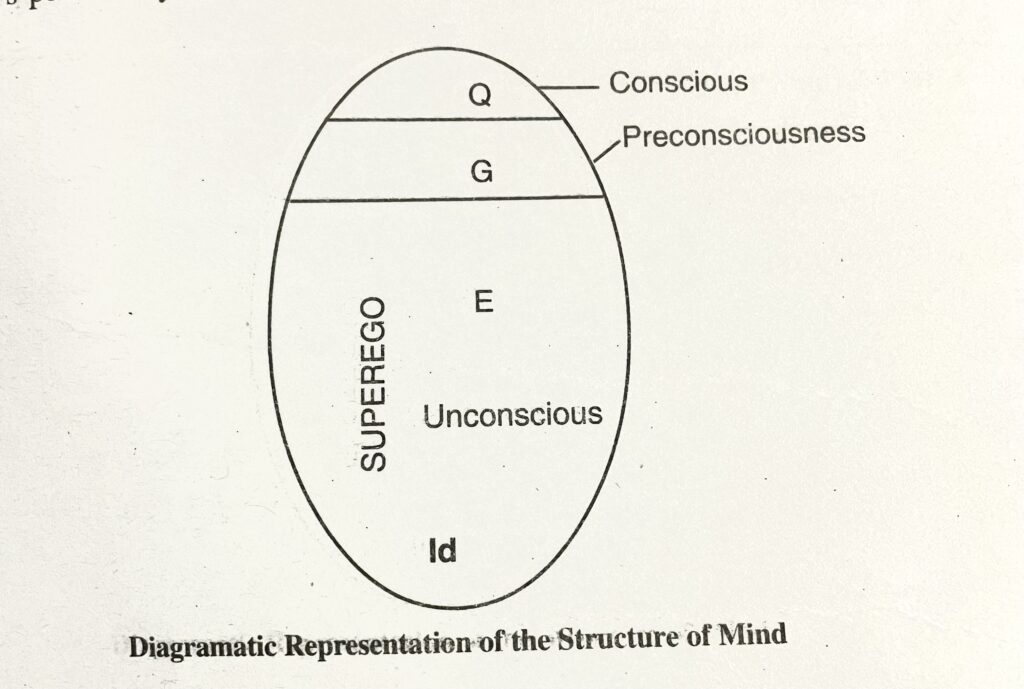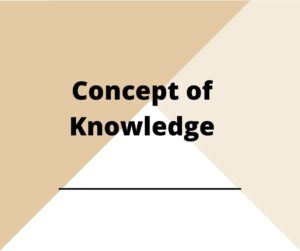Sigmund Freud’s Psychoanalytic theory of socialization is the formation of human personality is an outcome of the interplay of the Biological, Psychological and Social Facilities of an Individual.
Freud’s Principle of Human Personality
While Freud explained the behavioural patterns and personality traits of an individual, He formulated three principles these are-
- Every conscious action has a cause in the unconscious
- That consciousness is simply a puppet in the hands of the unconscious and
- Whatever one becomes as an adult was determined to be so in his/her early childhood
Thus, according to Freud’s principles a major part of human personality is formed in childhood and during rest of the life it is elaborated and sharpened. In this sense, Freud reiterates the role of primary socialization in the formation of personality.
Regions of Human Mind According to Sigmund Freud’s
The human mind has mainly three main regions:-
- Consciousness
- Precociousness
- Unconsciousness
Consciousness: The conscious region of the mind relates the individual with present events and activities in life.
Precociousness: It stores memories, which easily enter consciousness. Such a memory can readily be called to mind, For example when we say the word school you will recall an incident or a series of incidents from your school days
Unconsciousness: This region is the storehouse of all the repressed desires and bitter experiences that are unacceptable to the conscious mind. These repressed desires come to the level of consciousness either in a disguised form or in psychoanalysis.
Freud’s Psychoanalytic Theory of Socialization
For a more comprehensive analysis of Human personality, Freud shifted his emphasis from the region of mind to the structure and function of personality. It is the interaction among ‘Id’, ‘Ego’ and ‘Superego’ that gives a definite shape to the individual’s personality.

Structure of Mind
“Id”
- Id is the source of mental and instinctive energy
- It is seated in the unconscious and works on the ‘pleasure principle
- It believes only in what Freud calls ‘true psychic reality’. It knows nothing about rules, regulations, values and moralities and is never bothered about the object of reality in society
- The main objective of ‘id’ is to avoid pain and discharge tension
- It must satisfy its needs, even if it has to arrange imaginary means such as nocturnal dreams. But such imaginary means are not really capable of reducing tension
- For example-Imagine of food cannot satisfy hunger
“Ego”
- The second important system of personality is ‘ego’ with gradual physical and psychological development and due to some references from others, the child develops the sense of I, My, mine and Me. This is the beginning of the development of the ‘ego’
- The ego occupies a central place in the structure of the psyche and is seated in all three regions of the mind
- The basic difference between ‘the id’ and ‘the ego’ is the ‘id’ knows only the subjective reality of the mind, whereas the ‘ego; differentiates objective reality i.e. concrete external reality from subjective reality i.e. imaginary reality
- In order to avoid tension the ‘id’ desires to satisfy needs immediately, whereas the ‘ego’ restrains the satisfaction is available.
- The ego decides what is right and what is wrong, what is acceptable and what is not acceptable or what is possible or what is not possible.
- The action of an individual is guided by the ‘ego’ in choosing from among these alternatives on realistic principles.
‘Superego’
- The ‘superego’ is the third and last system of personality. It describes as the earliest moral code of the child and in this sense, it is the direct antithesis of the ‘id’
- Superego is also seated like ‘id’ in the conscious region of the mind
- It represents the values and norms of the society, which the child has internalized through the process of socialization.
- It strives for neither real nor imaginary real. It concerns itself with what is an idea.
- Its main function is to decide whether the chosen object of satisfaction of needs is right or wrong from the point of view of the moral principles of society.
Conclusion
In the whole structure of psyche ego occupies a central place because it is expected to maintain a balance between two opposite forces of ‘id’ and ‘superego’. Id demands direct instinctual satisfaction whereas the superego as an internalized moral code checks the flow of ‘id’ into undesirable and unapproved channels.
According to Freud, the sole purpose of psychoanalysis is to strengthen the ego. A weak ego is prone to all disorders. If the ego remains weak and the id becomes stronger then the result will be antisocial behaviour, delinquency or crime. If the superego starts dominating the psyche the result is suppression, leading to neurosis. Therefore, for the development of a healthy and socially useful personality, it is necessary to have a proper balance between id, ego and superego.



